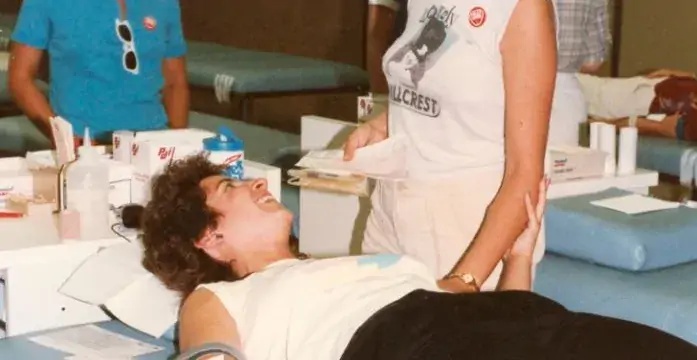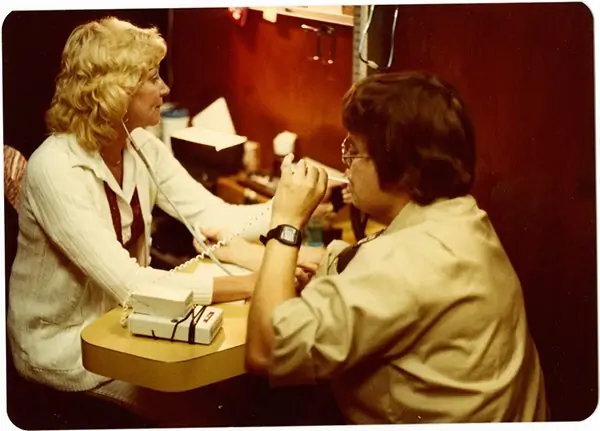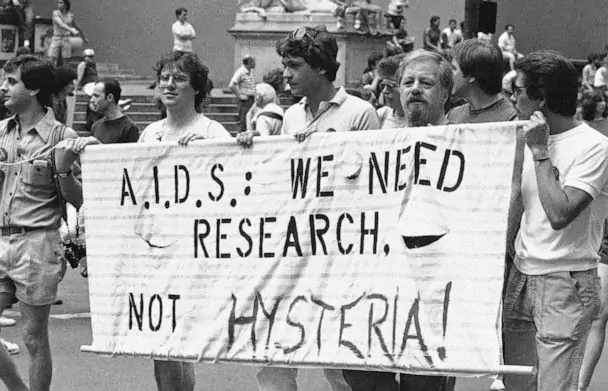
During the 1980s, the world was gripped by panic as the HIV epidemic spread swiftly, taking countless lives and shattering communities. In the face of uncertainty and stigma, one group of lesbian activists became unsung heroes: the Blood Sisters. Theirs is a narrative of compassion, togetherness, and perseverance in the face of hardship.
When HIV first appeared, ignorance and panic were pervasive. The disease was formerly referred to as “gay cancer,” resulting in widespread discrimination and prejudice. Doctors and healthcare professionals were frequently too afraid to treat people with HIV/AIDS, leaving many to suffer alone. A gay man from San Francisco recounted being terrified as he watched his friends die from the disease while medical professionals refused to enter their hospital rooms.
Lesbian Activists Step Up: Providing Care in a Time of Crisis
In the midst of this anxiety, lesbian women stepped up to provide support and care to people living with HIV/AIDS. Lesbians volunteered in hospitals, comforting and assisting gay men who were frequently marginalised by society. Their presence offered comfort to many, providing a sense of belonging and compassion during enormous despair.

Addressing Blood Shortages with Unity
In addition to their necessary assistance, lesbian activists worked to solve the severe scarcity of blood donations. Following a restriction on blood donations from men who have sex with men (MSM), the Blood Sisters formed, organising blood drives to provide a consistent supply of blood for HIV/AIDS patients. Barbara Vick spearheaded the formation of the San Diego Blood Sisters in 1983. Their efforts received great support, with hundreds of women queuing up to donate blood, defying stereotypes and biases to give hope to those in need.

Mobilising Community Support
These blood drives not only offered critical medical assistance, but also functioned as a powerful symbol of unity and community. Many HIV/AIDS patients cherished the knowledge that a network of loving individuals supported them as much as the medical care they received. At a time when the US government generally overlooked the misery of the LGBTQ+ community, organisations such as the Blood Sisters provided a beacon of hope and perseverance.
Advocating for Equality and Justice
The Blood Sisters’ legacy extends beyond their efforts to the fight against AIDS. Their initiatives fought stigma and injustice, bringing communities together and proving the strength of collective action. Despite confronting prejudice and marginalisation, lesbian campaigners stood alongside their gay counterparts, demonstrating that love and compassion have no bounds.
Recognising the Contributions of the Blood Sisters
Today, as we reflect on the lessons of the AIDS crisis, let us remember the unsung heroes who fought on the front lines against HIV/AIDS. The Blood Sisters’ story emphasises the value of togetherness, compassion, and tenacity in the face of adversity. Their acts inspire us to continue fighting for justice and equality for all.
Next Read: How This Indian State is Transforming Trans Lives through “Padanaveedu” Initiative


